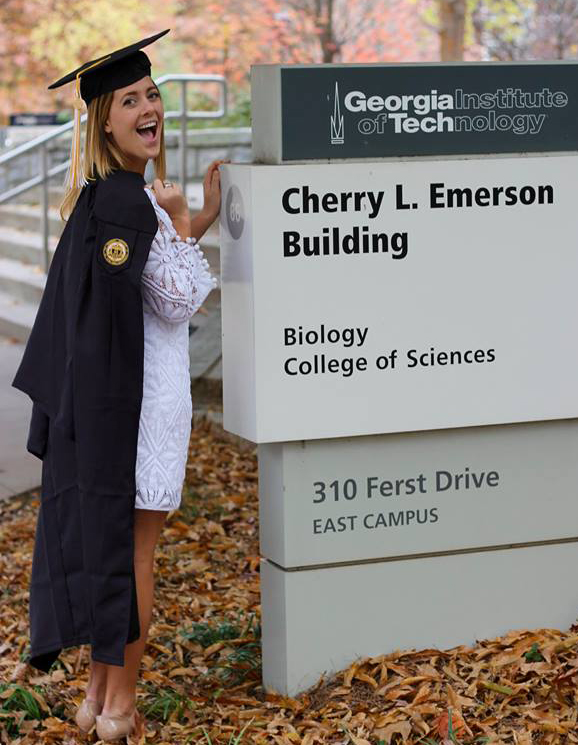
I currently work as an Associate for a healthcare consulting firm in Midtown ATL called Triage Consulting Group. As a whole, the company specializes in understanding hospital reimbursement and works with, as well as educates our clients in ways to identify, recover, and prevent losses in revenue. Personally, I work as a type of internal consultant and specialize in Medicare Policies. It is my responsibility to research and comprehend the extensive policies issued by the Centers of Medicare and Medicaid Services and be a resource to the other teams. In addition, a lot of the research I get to do is reviewing medical records and delving into the intricacies of traditional and groundbreaking procedures and operating techniques. I plan on learning and growing as much as possible in this position and hopefully move on to working in hospital administration as some sort of educator/trainer in respect to Medicare policies.
My professors in the Biology department taught me to be self-sufficient, determined, and a self-starter. Many of my classes were research heavy and forced me to read and decipher reports that were definitely above my current level of education. Having to get comfortable with advanced research, medical/biological terms, and exhaust all the resources at my disposal first (in hopes to gain a comprehensive understanding of my task) is something I do every day at my job- and I love it. I often get to review medical records and because of the comfort level I gained as Biology major in reading difficult and intricate texts, I am better at picking up on the minor, yet crucial details of doctor's operative progress notes taken during surgery.
As a biology major, there were also many times during some labs or "flipped-classroom" style classes where I had to exercise creative problem solving techniques. This has helped immensely in having to deal with technical problems (I work a lot in Access by building queries that help us narrow our search when we review data) that I first attempt to resolve on my own, so I then can either first deliver a solution, or at least a some sort of framework to what has been attempted to fix the issue, rather than to simply report a problem. I had so many professors at Tech that always encouraged me to first try and find an answer myself, which ties us back to the sufficiency and "comfort in the unfamiliar" my biology degree equipped me with.
Think about the soft-skills you hope to gain from Tech. Biology might sound specific in terms of learning material, but the classes span a number of subjects and there are so many lessons to be learned that aren't necessarily bio-specific. My main example of this is the concept of trade-offs- the diminishing of one quality in turn with the gains of another. We learn about this in Ecology and Evolutionary Biology, yet it also applies to business structure, economy, etc. In so many of my job applications and interviews, I was challenged to relate things I learned as a biology major to what ever my role would be at that job. It was surprisingly easy for a lot of the reasons mentioned above, and because there are more parts of biological principles that can relate to other fields than one might think at first. I challenge current and prospective students to try and apply lessons they learn in Biology 1510 or Ecology (definitely one of my favorites) to other fields they might want to pursue in their future career. One of my favorite moments in the first year of my job was realizing I was using the scientific method on a weekly basis, and now being more than a year-in, finding myself using it when I train others.
I definitely encourage you to study abroad (Valencia program) and apply to be a TA! These are two aspects of my time at Tech that I hold very close to my heart now. Get to know your professors and do not be scared to go to them or your TA for help. Even when it feels too late, its not. Be a good lab partner and speak up. At work, you can't avoid questions, so practice answering them head on now.


